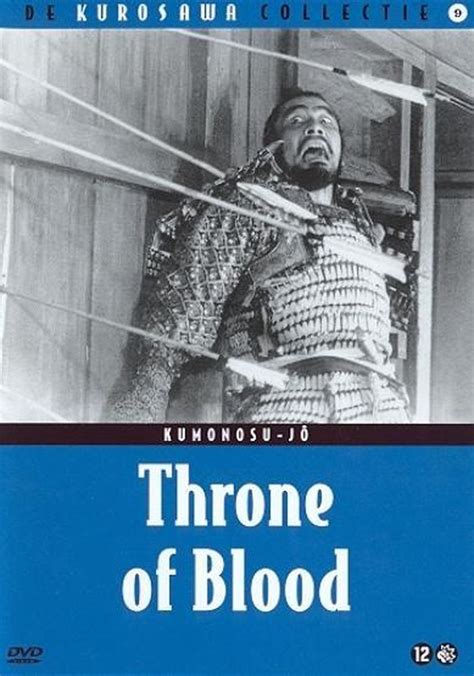Throne of Blood
directed by: Akira Kurosawa, year: 1957
actors: Toshiro Mifune, Isuzu Yamada, Takashi Shimura, Minoru Chiaki
actors: Toshiro Mifune, Isuzu Yamada, Takashi Shimura, Minoru Chiaki

Description:
Throne of Blood (1957) is Akira Kurosawa's stark adaptation of Macbeth set in feudal Japan. Warlord Washizu, spurred by ambition and a calculating wife, seizes power only to be consumed by paranoia as a prophecy and murder close in on him. The film combines potent storytelling with stark, atmospheric visuals, Noh-inspired staging, and rain-soaked cinematography. With Mifune and Yamada delivering chilling performances, Kurosawa crafts a myth of fate, hubris, and doom.Keywords:
Edo Period, Drama, Samurai Film, Macbeth Adaptation, Japanese Cinema, Psychological ThrillerIs Throne of Blood a good film?
"Throne of Blood," directed by Akira Kurosawa and released in 1957, is widely regarded as a cinematic masterpiece. This adaptation of Shakespeare's "Macbeth" is praised for its innovative filmmaking techniques, powerful performances—particularly by Toshiro Mifune—and its hauntingly atmospheric visuals. The film effectively blends Japanese Noh theater elements with Shakespearean tragedy, creating a unique and compelling narrative. Critics and audiences alike appreciate its exploration of ambition, fate, and the supernatural. Overall, it is considered a classic of world cinema.
What is the movie Throne of Blood about?
"Throne of Blood" is a 1957 Japanese film directed by Akira Kurosawa, inspired by Shakespeare's "Macbeth." Set in feudal Japan, it tells the story of Washizu (played by Toshiro Mifune), a samurai who encounters a spirit that prophesies his rise to power. Driven by ambition and spurred on by his manipulative wife, Asaji, he murders his lord to seize control. However, his reign is marked by paranoia and betrayal, leading to his tragic downfall. The film is renowned for its striking visuals, powerful performances, and themes of fate and ambition.
Is Throne of Blood based on Macbeth?
Yes, "Throne of Blood" is based on Shakespeare's "Macbeth." Directed by Akira Kurosawa, the film transposes the story to feudal Japan, where it follows the rise and fall of a warrior named Washizu, who is driven by ambition and prophecy. The film retains the central themes of ambition, fate, and moral decay found in the original play, while incorporating elements of Japanese culture and the samurai ethos. Released in 1957, it is celebrated for its artistic direction and powerful performances.
What was Akira Kurosawa's last film?
Akira Kurosawa's last film was "Madadayo," released in 1993. The film tells the story of a retired professor who reflects on his life and relationships with his former students, exploring themes of aging, legacy, and the human spirit. It is a poignant and introspective work that showcases Kurosawa's enduring artistry and philosophical depth. "Madadayo" was well-received and marked the conclusion of Kurosawa's illustrious career, which spanned several decades and left a profound impact on world cinema.
Explore More Categories:
Fatherhood Post War Mental Instability Urban Life Cold Deadline Dark Comedy Individuality Monarchy Piracy Supernatural Thriller Self Sufficiency Allegory Tribal Cosmic Battle Post Impressionism Prequel Adrenaline Family Disapproval Sustainability Oppenheimer Negotiation Outsider Political Intrigue Transgender